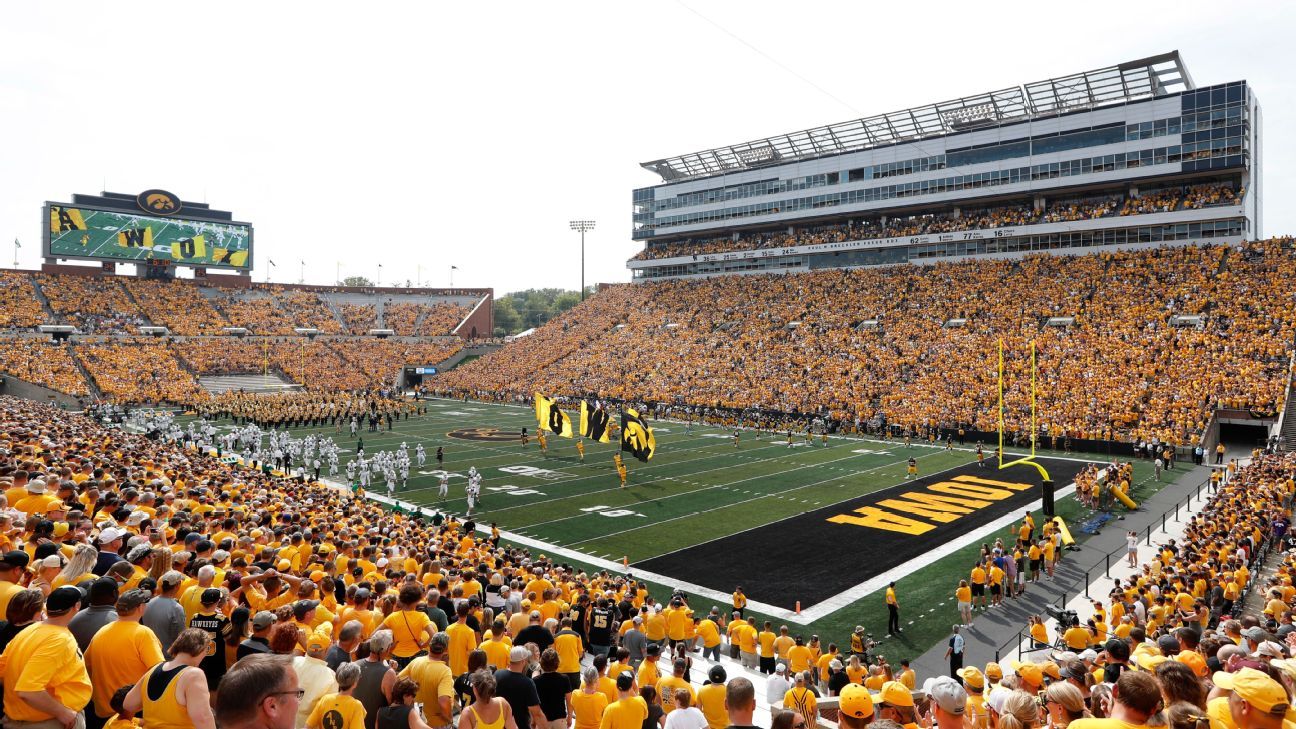IOWA CITY, Iowa — The field at Iowa’s Kinnick Stadium will be named for Duke Slater, the trailblazing Black football player who was an All-American tackle a century ago, played in the NFL, and became a pioneering Chicago judge.
The university’s Board of Regents approved the name Duke Slater Field at Kinnick Stadium during its meeting in Cedar Falls on Wednesday.
Slater went to high school in Clinton and played for the Hawkeyes from 1918 to 1921. He helped the 1921 Hawkeyes finish 7-0, including a victory over Notre Dame and coach Knute Rockne.
Slater was the NFL’s first Black lineman, playing on offense and defense for 10 seasons with teams in Rock Island, Illinois, Milwaukee, and Chicago.
He earned a law degree from Iowa while playing in the NFL, later worked as a lawyer in Chicago, and became one of the city’s first Black judges.
Slater, who died in 1966 at age 67, will be inducted next month into the Pro Football Hall of Fame. He entered the College Football Hall of Fame in 1951.
The only football stadium in the Power Five conferences named for a Black player is Iowa State’s Jack Trice Stadium.
The idea of honoring Slater at Iowa’s stadium originated in the 1970s when university president Willard “Sandy” Boyd proposed naming the Hawkeyes’ stadium Kinnick-Slater, in part to honor 1939 Heisman Trophy trophy winner Nile Kinnick.
Boyd’s idea faced pushback from some fans and a committee opposed to having a joint name. As a compromise, the university named the stadium for Kinnick and a residence hall for Slater.
The university in 2019 added a bronze sculpture outside Kinnick Stadium to commemorate Slater and the 1921 team.
The push to put Slater’s name on the stadium was renewed following protests for racial justice across the nation and on campus in 2020. Supporters argued the compromise 50 years ago snubbed one of Iowa’s greatest Black athletes and scholars.
Last year’s protests also prompted several former Black players to call out the racial insensitivity they faced while playing under Iowa coach Kirk Ferentz, who apologized and made several changes, including allowing kneeling during the national anthem.
A group of former Black players is suing the program and two top Ferentz assistants, including his son and offensive coordinator Brian Ferentz, for discrimination.
